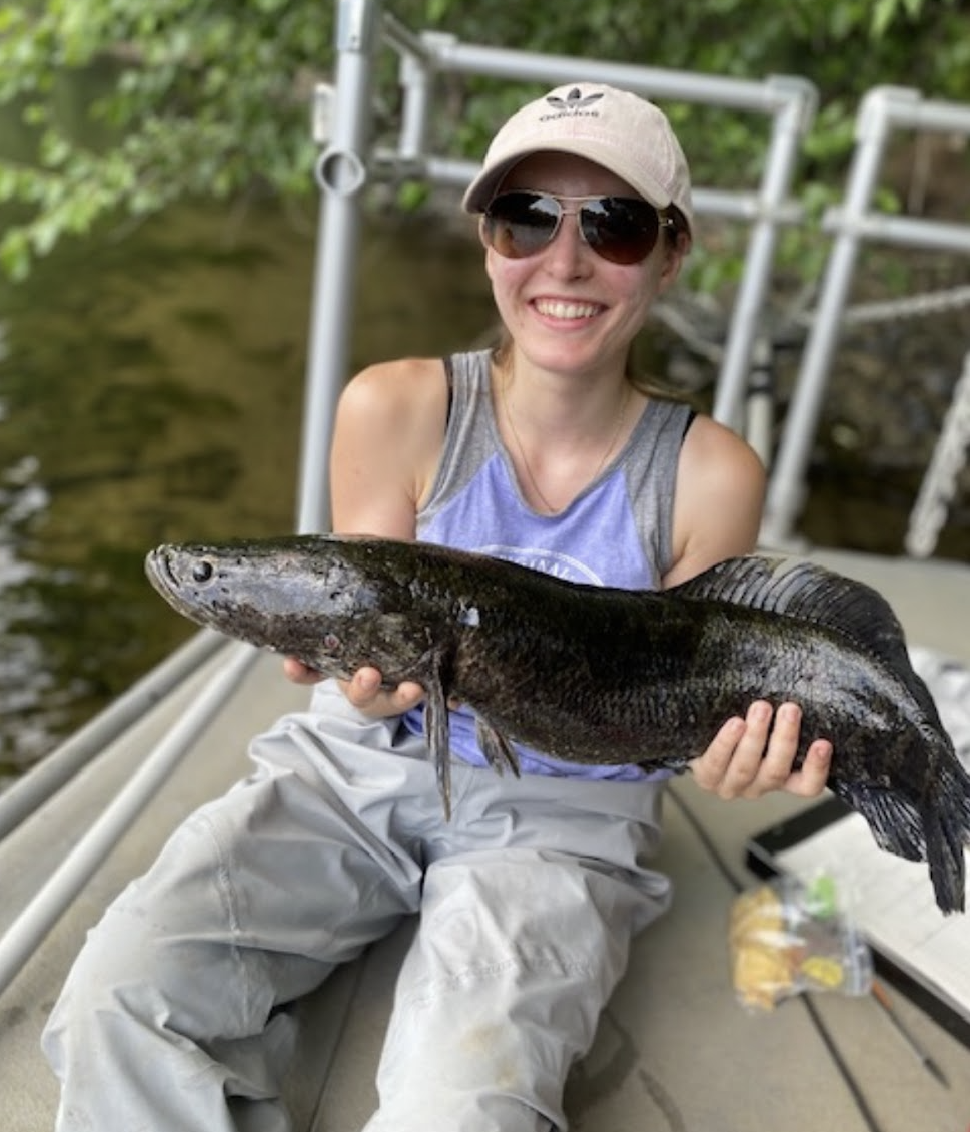Research & Internships
Many environmental science majors participate in internships or scientific research, some even do both!
Research and Internships
Many students in the Environmental Science Program conduct independent research projects that are often presented at local, regional, and national meetings and/or symposia. Research projects are original research and serve to advance our scientific knowledge while also providing students with a transformative educational experience. The faculty in our program actively encourage student research, and their diverse interests and commitment to student inquiry provide research opportunities for almost any environmental interest. Students are encouraged to seek out faculty members whose interests overlap with theirs.
Students in the Environmental Science Program are also encouraged to pursue internships for course credit at conservation organizations, governmental units, industries, NSF-REU sites, and the National Park Service. KU Environmental Science students have participated in internships at a variety of locations including Hopewell National Park, Valley Forge National Park, the Yellowstone Fishery Assistance Office, Citizen's Clearinghouse for Hazardous Wastes, Philadelphia Zoo, North Carolina Botanical Garden, Ransom Township Supervisors, East Penn Manufacturing, Giorgi Companies, and the City of Philadelphia.
STUDENT SPOTLIGHT

Alexa Karlowicz - Biology Track
Tell us a little about your internship location and what you did in your position.
I worked at the Wilkes Barre office for the Clean Water Program for the northeast section for PADEP. I worked closely with the aquatic biologists and did water quality network stations. I also ran the bacterial water quality assessment. This meant I picked sites and made a map using ArcPro to create locations to sample from that represented the water system. Then I went to those sites and made sure they were all easily accessible and then we performed testing in those areas routinely. I picked the dates and times and was in charge of how to sample and label sheets and turn it in to the lab. I worked mainly by myself for constructing the project but with a team for the physical sampling of the project. Throughout this project I helped my boss with the water quality networks and entered permit information into the PADEP database.
Describe an experience that you would not have had were it not for this internship.
I would have never been electrofishing. This was an exciting experience that was new to me, and I may have never done without this opportunity. I was able to join the team to do electrofishing while wading and also on a separate trip I was able to assist with electrofishing from a boat. These trips were very fun and made the internship memorable.
How has this internship experience helped prepare you for your career?
This internship allowed me to experience how a normal 9-5 5-day workday feels and understand what I would be doing after graduation. This also helped me understand that I do not want to work in this specific field. Before starting this internship, I thought this would be my end goal but after this internship I realized I really did not enjoy the typical workday and that has led me to doing research on different job opportunities I might have after I graduate.
What is the most interesting thing you’ve learned so far?
The most interesting thing that I have learned is how connected everyone’s job is. Especially at this specific program I noticed everyone working together and sharing reports and providing feedback. I did not expect so many people to work in the field together or even different region locations working together to share data and get assistance for their projects. It was interesting to see how everyone works together and how they share their data and their findings to help other people understand how to sample better or how to interpret their data.






